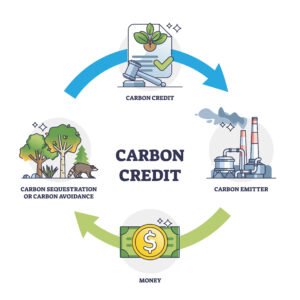Carbon Certifications
Carbon Certification
WSO is a Carbon certification independent third-party organization that is accredited to certify against the relevant carbon standards.
What is Carbon Certification:
Carbon certification is a process where an organization’s efforts to reduce or offset their greenhouse gas emissions are independently verified and validated against a recognized standard. This provides assurance that the organization’s claims about their carbon footprint and their efforts to mitigate it are credible and accurate.
Key Aspects of Carbon Certification:
1. Greenhouse Gas Inventory: The first step in carbon certification is to conduct a comprehensive inventory of the organization’s greenhouse gas emissions. This involves identifying all sources of emissions, such as energy use, transportation, manufacturing processes, and waste generation, and quantifying the amount of greenhouse gases emitted from each source.
2. Emission Reduction or Offset Projects: Once the greenhouse gas inventory is complete, the organization may implement projects to reduce its emissions. These projects can include energy efficiency improvements, renewable energy installations, changes in transportation practices, or investments in carbon offset projects.
3. Verification and Validation: The organization’s greenhouse gas inventory and emission reduction or offset projects are then independently verified by WSO certification body. The certification body assesses the accuracy of the inventory, the effectiveness of the emission reduction projects, and the compliance with the relevant carbon standard.
4. Certification: If the verification is successful, the organization is certified by WSO carbon standard. This certification provides assurance to stakeholders that the organization’s claims about its carbon footprint and its efforts to mitigate it are credible and accurate.
1. Greenhouse Gas Inventory: The first step in carbon certification is to conduct a comprehensive inventory of the organization’s greenhouse gas emissions. This involves identifying all sources of emissions, such as energy use, transportation, manufacturing processes, and waste generation, and quantifying the amount of greenhouse gases emitted from each source.
2. Emission Reduction or Offset Projects: Once the greenhouse gas inventory is complete, the organization may implement projects to reduce its emissions. These projects can include energy efficiency improvements, renewable energy installations, changes in transportation practices, or investments in carbon offset projects.
3. Verification and Validation: The organization’s greenhouse gas inventory and emission reduction or offset projects are then independently verified by WSO certification body. The certification body assesses the accuracy of the inventory, the effectiveness of the emission reduction projects, and the compliance with the relevant carbon standard.
4. Certification: If the verification is successful, the organization is certified by WSO carbon standard. This certification provides assurance to stakeholders that the organization’s claims about its carbon footprint and its efforts to mitigate it are credible and accurate.

Benefits of Carbon Certification:
- Enhanced Credibility: Carbon certification provides independent assurance that an organization’s claims about its carbon footprint and its efforts to mitigate it are credible and accurate. This can enhance the organization’s reputation and build trust with stakeholders.
- Competitive Advantage: Carbon certification can help organizations differentiate themselves from their competitors by demonstrating their commitment to environmental sustainability. This can be a valuable asset in attracting customers, investors, and employees.
- Improved Efficiency: The process of conducting a greenhouse gas inventory and implementing emission reduction projects can help organizations identify areas where they can improve their energy efficiency and reduce their costs.
- Reduced Risk: Carbon certification can help organizations manage their carbon-related risks, such as regulatory compliance and reputational damage.
Types of Carbon Certification:
- Carbon Neutral Certification: This certifies that an organization has offset all of its greenhouse gas emissions.
- Product Carbon Footprint Certification: This certifies the carbon footprint of a specific product or service.
- Organizational Carbon Footprint Certification: This certifies the overall carbon footprint of an organization.


